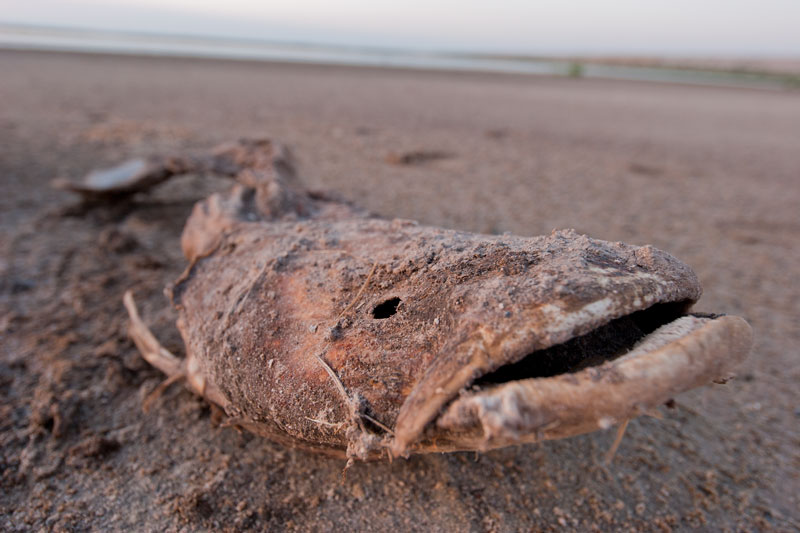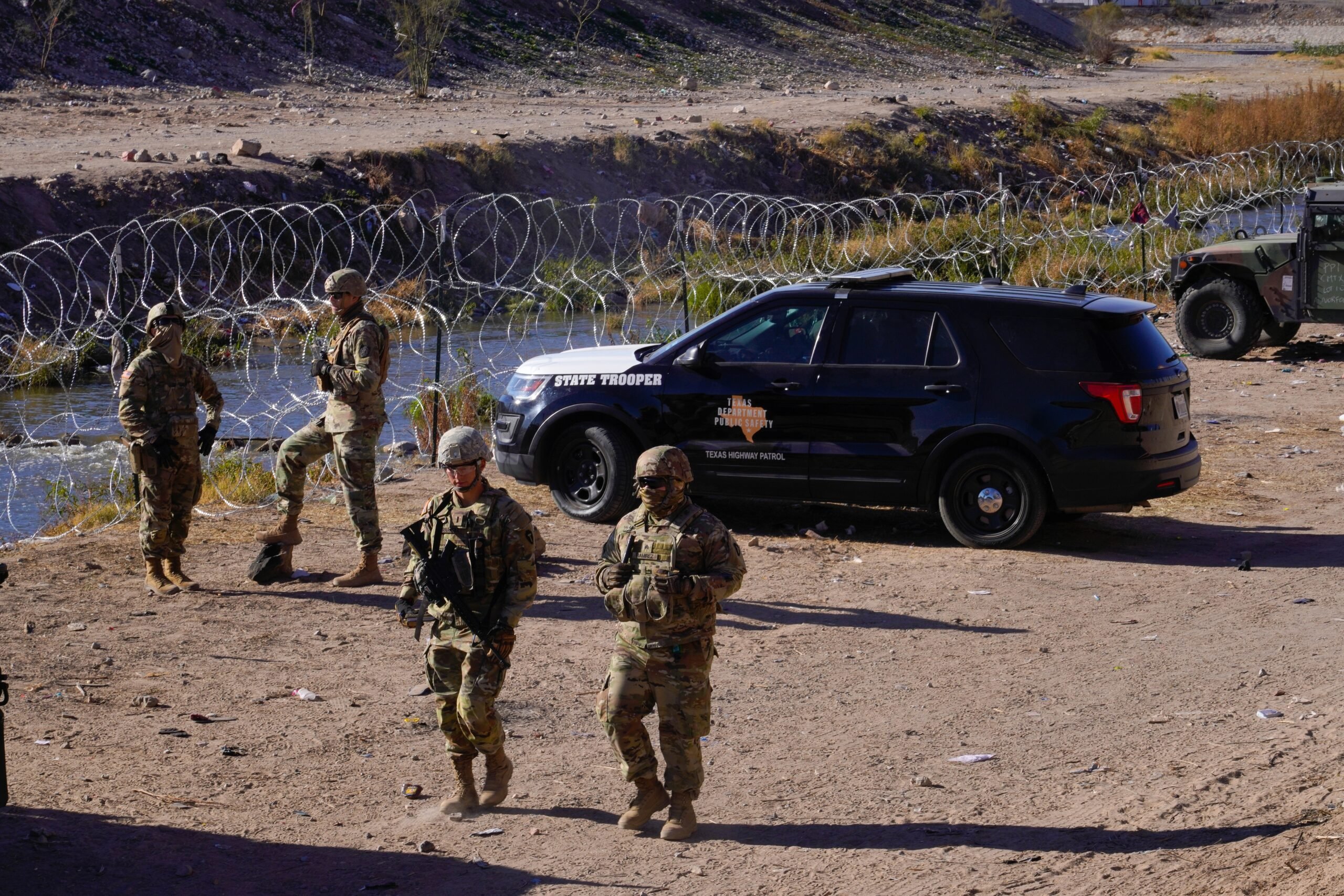
The War of the Colorado River Heats up at the Lege

Above: Dead catfish at OC Fischer
It’s amazing what a good old-fashioned drought can do to the Legislature. This is now the third legislative session that state lawmakers have met during dry times and the growing crisis has sparked plenty of action. The main act, of course, is funding the state water plan, a costly endeavor that has sucked up much of the oxygen (and money) at the Capitol.
But money can’t solve all of Texas’ water problems. Today, both Senate and House committees took up contentious legislation to address two fundamental problems in Texas: 1) Water is inequitably distributed across the state, which to put it simply means there’s plenty where it’s not needed and not much where it is; 2) There isn’t enough water to go around in some areas during times of drought.
The latter issue got a good flogging this morning in Senate Natural Resources. In the Colorado River basin, downstream rice farmers are pitted against upstream communities, primarily the city of Austin and the communities around the Highland Lakes—with the powerful Lower Colorado River Authority (LCRA) acting as referee. For the second year in a row, LCRA has put in place an emergency plan that cuts off the rice farmers. The severity of the drought, combined with a population boom in Central Texas, is putting extraordinary stress on the river basin.
Now, Sens. Kirk Watson (D-Austin) and Troy Fraser (R-Horseshoe Bay) want to make the emergency cutoff a permanent feature of LCRA’s management plan. Their bill, Senate BIll 1631, favors “firm” customers of LCRA (read: the city of Austin and other upstream communities), who pay more to have water available 100 percent of the time, over “interruptible” customers, who get water only when there’s enough to go around. Of course “enough” is a judgment call. And in Fraser and Watson’s view, LCRA’s current management plan is too deferential to the interruptible crowd (read: the rice farmers). SB 1631 passed committee on a 8-3 vote this evening. (Three rural Republicans, including Hegar, voted against it.)
The bill, Fraser said, is “to remind [LCRA] that they have both an obligation and the authority to protect the rights of firm users that are paying a premium for water.”
Under the legislation, the “supply of interruptible water must be cut off entirely” by LCRA before firm users would have to curtail their usage or implement drought contingency plans.
If levels in Lake Travis and Lake Buchanan fell below 850,000 acre-feet, or about 40 percent full, LCRA would have to suspend all water releases to rice farmers and other “interruptible” customers. (The Highland Lakes currently hold about 821,000 acre-feet. If the drought persists, the lakes could drop to 600,000 acre-feet by late summer, approaching the drought of record.)
The idea of the Legislature directly meddling in the river basin didn’t sit too well with Sen. Glenn Hegar, a Republican who represents the lower stretches of the Colorado. “I don’t think it’s the Legislature’s role to come here and dictate how those contracts should be managed,” he said.
The downstream farming communities, though, say they’ve already taken an economic blow for upstream users. Matagorda County Judge Nate McDonald blasted SB 1631 as “bullying” by Central Texas interests. “The heart of this bill is dark,” he said. “This is not how we treat each other in Texas.”
Ronald Gertsen, a Matagorda County rice farmer, took a swipe at the largely wealthy communities ringing the Highland Lakes. “This bill aims to augment recreational lake levels at the expense of irrigated agriculture,” he said.


